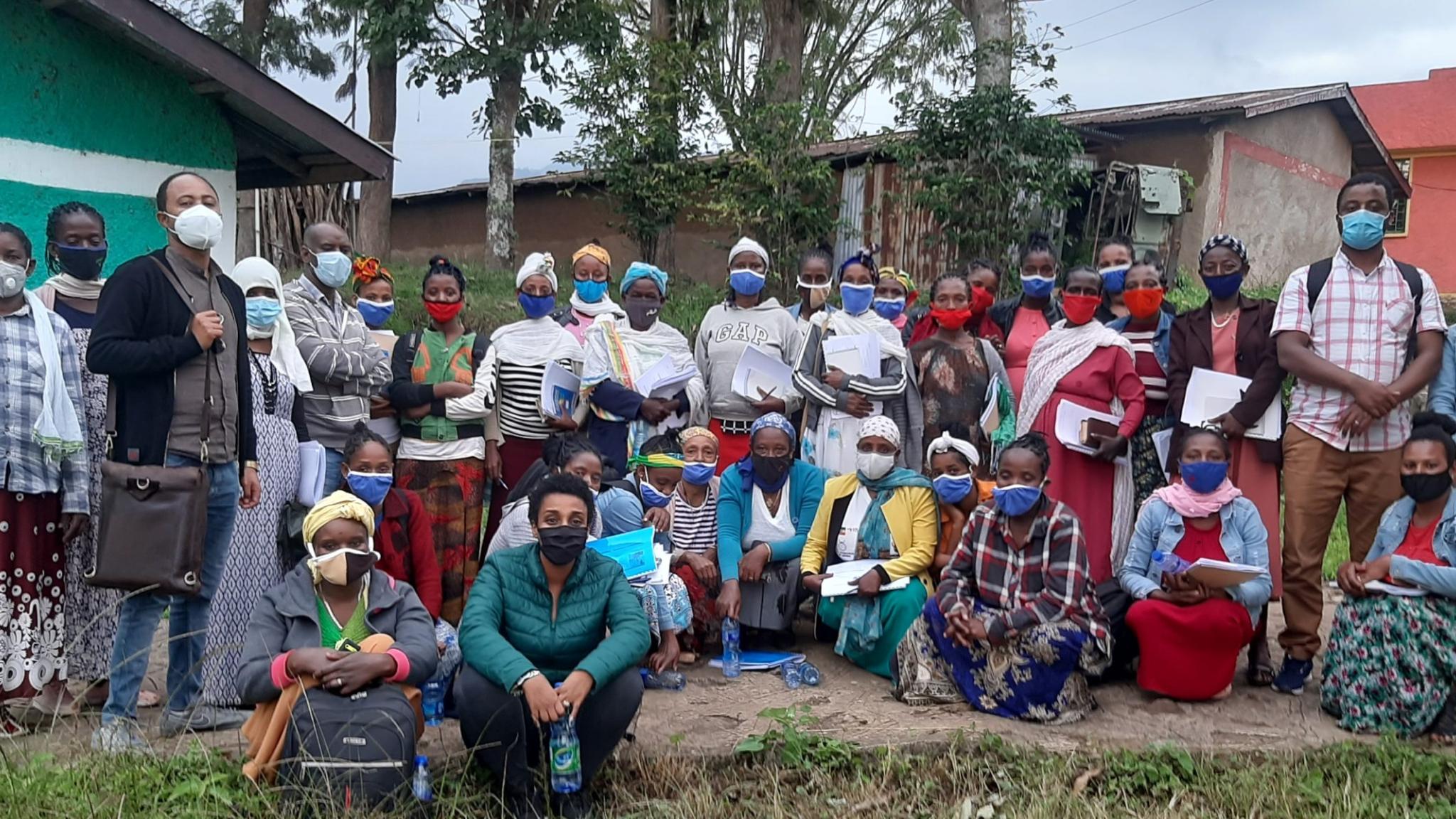Iddirs in Ethiopia help diagnose tuberculosis in children
In Ethiopia, female self-help associations, called "Iddirs", help diagnose tuberculosis (TB) in children. These women receive training in which they acquire the necessary knowledge and skills to identify children at risk for TB and provide support in preventive treatment.
The training of the Iddirs is an initiative of KNCV Tuberculosis Foundation in collaboration with Love in Action Ethiopia (LIEA). It is part of the TB REACH Wave 7 project of Stop TB Partnership.
Ethiopia is a high TB-burden country, missing an estimated one third of all TB infections per year. Young children who are in close contact with contagious pulmonary tuberculosis, for example family members with TB, are at high risk of latent tuberculosis infection (LTBI). Which means that they are infected with the TB bacteria and can develop the disease TBC. The most important life-saving measure so far has been the screening of children whose family members have infectious TB and provide TB preventive treatment (TPT) to children with LTBI. This prevents the development of the TB disease and possibly dying from it.
Despite improvements, the treatment of latent tuberculosis in children remains a concern in Ethiopia. More than a third of eligible children under the age of five are not receiving the recommended preventive medication, and the completion rate of treatment as low as 12% was reported in some areas.
There is a shortage of treatment support and the actions taken to ensure that children complete treatment properly, are inadequate. This has several reasons:
- Low coverage of contact investigation in children under five years of age;
- Lack of awareness of the benefits of TPT and reluctance to provide drugs to "healthy children";
- Structural barriers such as shortages of supplies, lack of transport and high turnover of health workers.
- identify the main problems and have the knowledge and skills required to screen for household-based TB contact screening;
- identify child household contacts and link to health facility for TPT initiation;
- provide treatment adherence support and monitoring;
- understand the use of customized recording and reporting formats;
- organize and participate in meetings with the community and health facilities;
- and develop communication skills, such as giving speeches.
